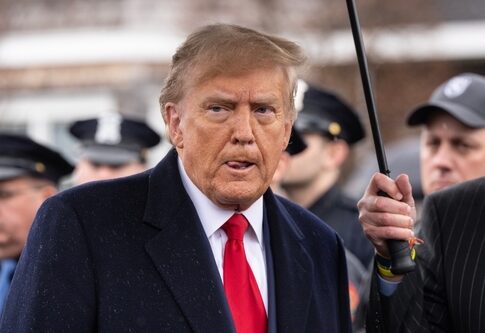In a troubling development that raises serious concerns about national security, recently unsealed federal memos reveal that the FBI released a suspect with known terrorist connections and a plot to assassinate former President Donald Trump on parole, despite his ties to Iran and extremist activities. The suspect, identified as Shahram Poursafi, was involved in a broader conspiracy linked to Iranian military operatives, and his release has ignited fierce debate over the judgment and priorities of federal authorities.
Poursafi, a 45-year-old Iranian national, was initially detained on suspicion of being involved in a plot to kill Trump. The plot, which surfaced in late 2020, was allegedly motivated by Iran’s desire to avenge the death of General Qassem Soleimani, a top Iranian military commander killed by a U.S. drone strike in January of that year. According to the FBI's investigation, Poursafi had direct ties to the Iranian Revolutionary Guard Corps (IRGC), a designated terrorist organization by the U.S. government.
🚨🚨🚨 FBI IMPORTED FOREIGN OPERATIVE. The FBI permitted Asif Raza Merchant, a Pakistani national with ties to terrorism and a recent trip to Iran, to enter the United States under “significant public benefit parole.” They allowed him to stay in the country, even after his parole… pic.twitter.com/RLWxgesL6b
— 🇺🇸 Freedom Piper 🇺🇸 (@FreeThinkerInc) August 9, 2024
Despite these alarming connections, Poursafi was granted parole in March 2022, only months after his arrest. The decision to release him has been met with widespread criticism, particularly in light of the FBI's acknowledgment of his terrorist ties and his recent trip to Iran, which reportedly occurred just before he was apprehended. The unsealed memos show that the FBI was well aware of the risks posed by Poursafi, yet opted to place him under strict supervision rather than keeping him in custody.
The FBI's decision appears even more questionable given the context of Poursafi’s background. Prior to his arrest, Poursafi had been living in the U.S. for several years and had established connections with various extremist groups. His movements were reportedly monitored, but the memos suggest that the level of surveillance was insufficient to mitigate the risk he posed. In fact, Poursafi was able to communicate with Iranian contacts and even received instructions from them while under the watch of federal authorities.
FBI Deputy Director Paul Abbate: “The terrorist regime of Iran has been targeting people of our country for many years now…we know publicly they have been targeting former President Trump; they called for his assassination.” pic.twitter.com/iPChpOc3GQ
— Conservative War Machine (@WarMachineRR) July 30, 2024
The timing of Poursafi's release also raises red flags. His parole coincided with a period of increased diplomatic tensions between the U.S. and Iran, further complicating the situation. Critics argue that the decision to release Poursafi was influenced by political considerations rather than national security concerns. This has led to calls for a full investigation into the FBI’s handling of the case, with some lawmakers demanding accountability for what they see as a reckless and dangerous decision.
Adding to the controversy, Poursafi’s case is part of a larger pattern of leniency shown by the FBI in recent years towards individuals with ties to foreign extremist groups. This trend has sparked outrage among national security experts, who warn that such practices endanger the safety of American citizens and embolden terrorist organizations. The release of Poursafi is seen by many as a failure of the justice system to prioritize the security of the nation over other considerations.
The FBI has yet to publicly comment on the specifics of the Poursafi case, citing the ongoing nature of the investigation. However, sources within the agency have defended the decision, arguing that the conditions of Poursafi’s parole were among the strictest ever imposed. These conditions reportedly included round-the-clock surveillance, regular check-ins with law enforcement, and restrictions on his movements. Yet, critics remain unconvinced, pointing out that such measures are inadequate when dealing with a high-risk individual like Poursafi.
As the debate over Poursafi’s release continues to unfold, the implications for U.S. national security policy are significant. The case underscores the challenges faced by federal authorities in balancing civil liberties with the need to protect the country from external threats. It also highlights the ongoing threat posed by Iran and its proxies, who continue to target U.S. interests both at home and abroad. With the 2024 election cycle already underway, the issue of national security is likely to remain a central topic of discussion, and the Poursafi case may serve as a stark reminder of the potential consequences of complacency in the face of danger.

